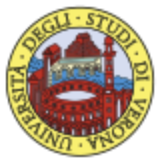Introduction
The University of Verona is a public non-profit university located in Verona, Italy. It is a member of the European University Association (EUA) and is committed to creating a good academic environment.
Overview
Number of students: There are about 19,873 students, of which 994 are international students, accounting for about 5%, and female students account for 64%.
Majors: It offers undergraduate, master and doctoral programs in many fields including natural sciences, medicine, economics, law, literature, philosophy, computer science, etc.
History and establishment time
The University of Verona was established in 1982, but its history can be traced back to earlier educational institutions.
School strength
Faculty: It has a group of professors and experts with rich teaching and research experience in various disciplines. They are committed to providing students with high-quality education and guidance and promoting the development of academic research.
Scientific research level: The school attaches great importance to scientific research, with multiple research centers and laboratories. It has carried out in-depth research in many disciplines such as biomedicine, economics, law, computer science, etc., and has achieved a series of important scientific research results. For example, research in the field of biomedicine provides new ideas and methods for the diagnosis and treatment of diseases; research in the field of economics has a positive impact on the formulation of local and national economic policies.
International Cooperation: Actively carry out cooperative exchange projects with universities around the world, such as student exchange programs, joint research projects, etc. Through cooperation with internationally renowned universities, it provides students with a broad international exchange platform, broadens their international vision, and enhances the international influence of the school.
Nature of the institution
Public comprehensive university.
Educational philosophy
Focus on cultivating students' innovative thinking, practical ability and social responsibility, and encourage students to actively participate in academic research and social practice activities to adapt to the ever-changing social needs. Emphasize the interdisciplinary education model, promote exchanges and integration between different disciplines, and cultivate compound talents with comprehensive literacy and innovation ability.
Key laboratories and disciplines
Key laboratories: The school has a number of advanced scientific research laboratories, such as biomedical laboratories, computer science laboratories, economic and social research laboratories, etc. These laboratories are equipped with first-class experimental equipment and technical personnel, providing strong support for teachers and students to carry out cutting-edge scientific research.
Advantageous disciplines: Medicine, life sciences, economics, law, literature, linguistics and other disciplines have a high reputation and influence in Italy and even internationally. For example, the teaching and research level of the medical major is in a leading position in Italy, and its affiliated hospitals provide students with rich clinical practice opportunities; the economics major has cultivated a large number of professionals with solid theoretical foundation and practical ability, making important contributions to the economic development of the local and national areas.
Department
The school has a total of 12 departments, namely:
Department of Economics: Provides professional courses such as economics, economics and business management, cultivates students' professional knowledge and analytical ability in the economic field, and lays a solid foundation for students' future employment in finance, corporate management and other industries.
Department of Law: Offers majors such as law and legal studies, focusing on cultivating students' legal thinking and legal practice ability, enabling students to master laws and regulations proficiently and provide professional legal services to the society.
Department of Literature and Philosophy: Covers majors such as literature, philosophy, and history, cultivates students' humanistic qualities and critical thinking ability, and enables students to have a deep cultural heritage and good writing skills.
Department of Medicine and Surgery: Provides professional courses such as medicine, surgery, and nursing, focusing on cultivating students' clinical practice ability and medical research ability, and cultivating professional talents for the medical and health industry.
Department of Mathematics, Physics and Natural Sciences: including majors such as mathematics, physics, chemistry, and biology, cultivating students' basic theoretical knowledge and experimental skills in the field of natural sciences, and providing support for students to further their studies or engage in scientific research.
Department of Computer Science: offering majors such as computer science and technology, information engineering, etc., cultivating students' computer programming ability, software development ability and information technology application ability to meet the demand for computer professionals in the information age.
Department of Educational Sciences: offering majors such as pedagogy and educational psychology, focusing on cultivating students' educational and teaching theories and practical abilities, and cultivating professional educators for the education field.
Department of Sports Sciences: providing professional courses such as physical education and sports training, cultivating students' professional knowledge and sports skills in the field of sports, and cultivating professional talents for industries such as sports education and sports management.
Department of Foreign Languages and Literature: including a variety of foreign language majors such as English, French, German, and Spanish, as well as related majors such as comparative literature and translation, cultivating students' foreign language skills and cross-cultural communication skills.
Department of Psychology: offering majors such as psychology and applied psychology, cultivating students' theoretical knowledge of psychology and practical abilities such as psychological counseling and psychotherapy, and providing professional psychological services to the society.
Department of Agriculture, Food and Environmental Sciences: Involving majors such as agricultural science, food science and engineering, and environmental science, it cultivates students' professional knowledge and practical ability in the fields of agriculture, food and environment, and contributes to sustainable development.
Department of Pharmaceutical Sciences: Provides professional courses such as pharmaceutical engineering and medicinal chemistry, cultivates students' professional knowledge and R&D capabilities in the pharmaceutical field, and cultivates professional talents for the pharmaceutical industry.
Ranking
Ranked 826th in the 2024 QS World University Rankings.
Ranked 451st in the 2024 THE World University Rankings.
Expenses
Tuition fees: Undergraduate tuition fees generally range from 1,000 to 2,500 euros per year, while graduate tuition fees range from 1,500 to 3,000 euros per year, depending on the student's income level and the major chosen.
Other expenses: Students also need to pay student fees of about 150 to 200 euros per year, books and school supplies costs of about 200 to 400 euros per year, and personal living expenses are about 1,500 to 2,000 euros per year.
Campus environment
Geographic location: Verona is a city with a history of more than 2,000 years. The University of Verona is located in this city. The campus is surrounded by many historical sites and famous attractions, such as the medieval Castelvecchio Castle and the ancient arena of Verona, etc., provide students with a unique learning and living environment.
Teaching facilities: The campus has modern teaching facilities, including libraries, laboratories, classrooms, etc. The school's library has a rich collection of books, covering books and journals in various disciplines, providing good resource support for students' learning and research. In addition, the school is also equipped with advanced experimental equipment and computer facilities to meet the needs of teaching and scientific research.
Living facilities: The school provides students with complete living facilities, such as student dormitories, restaurants, sports facilities, etc. The student dormitories are comfortable and well-equipped, providing students with good living conditions. The school's restaurant offers a variety of delicacies to meet the different taste needs of students. In addition, the school also has sports facilities such as stadiums and gyms, encouraging students to actively participate in physical exercise and enrich their extracurricular life.
-
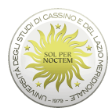
University of Cassino and Southern Lazio
-
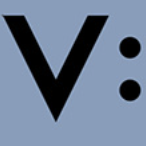
University of Campania Luigi Vanvitelli
-
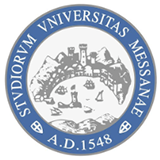
University of Messina
-
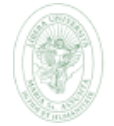
Libera Universita degli Studi Maria SS. Assunta di Roma (LUMSA)
-
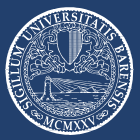
University of Bari Aldo Moro
-
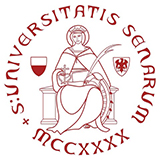
University of Siena
-
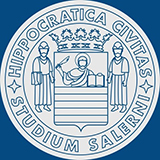
University of Salerno
-
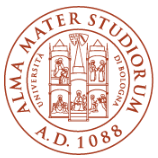
University of Bologna
-
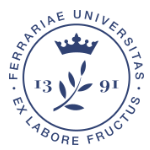
University of Ferrara
-
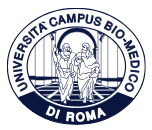
Campus Bio-Medico University of Rome
-

Mesoamerican University
-

Istmo University
-

Mariano Galvez University of Guatemala
-

Regional University of Guatemala
-

Galileo University
-

Francisco Marroquín University
-

Rafael Landívar University
-

University of the Valley of Guatemala
-

University of San Carlos of Guatemala
-

Technological Institute of Tlaxcala Plateau
-

Golfo University
-

Technological University of South Sonora
-

Technological University of Huejotzingo
-

Tizimín Institute of Technology
-

Chilpancingo Institute of Technology

